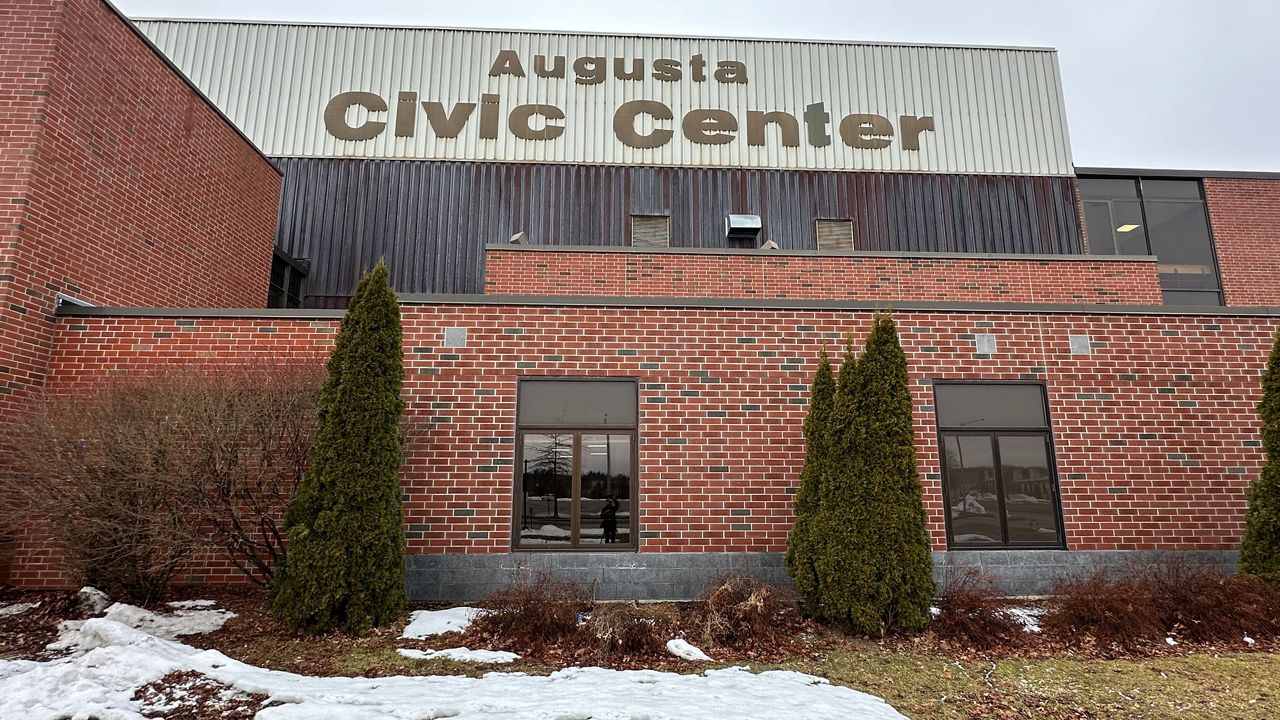Augusta’s 50-year-old civic center needs at least $33 million in repairs and upgrades, a number that grows to $80 million if the region wants the facility to continue as an emergency shelter, according to the city’s development director.
“Some of the aspects of the building that were constructed in the early 1970s have now aged a bit and need repair and replacement,” Matt Nazar, city development services director said Friday.
The civic center, which celebrated a half-century of events last year with an attempt to break the world record for Elvis impersonators, hosts about 400 events a year, with about 400,000 people coming through the doors, civic center director Margaret Noel said.
Those major events include high school state basketball championships, concerts, graduations, political conventions, trade shows and gubernatorial inaugurals.
“Lots of people rely on us to provide them with good service, good product, food and a building that is attractive and can fill the needs of the different events that are going on here,” Noel said. “The building itself is structurally sound. It’s just dated.”
In a memo to city council, Nazar broke down the $33 million estimate, noting that the building needs $17 million for interior renovations; $6 million for heating, air conditioning and ventilation upgrades; $5.6 million for new electrical and $4 million for exterior work.
He told city council Thursday the estimate does not include work on the North Wing, which includes several conference rooms, or the bleachers and sound system in the main auditorium.
During the council briefing, Councilor Michael Michaud said the civic center serves as an economic driver for the city, supporting three nearby hotels and several restaurants. He said he and others recently toured the facility and that he’s worried about the work that needs to get done.
“I’m very very nervous that in its current state if nothing is done sooner than later, in another five years all we’ll see at that civic center would be a lot of rolls of caution tape going around the building,” he said.
Top among the priorities is replacing the roof, which will happen soon thanks to $1.25 million in federal recovery act funds and $750,000 in city borrowing regardless of any other repairs, City Manager Susan Robertson said.
As to the building's future, Michaud called for a thorough study of the options with updated cost estimates and consideration of building new versus repairing the existing building. His goal is to make sure whatever is done will last another 50 years, not push added costs out for another council to deal with in 20 years.
In addition, if the city wants to continue to use the civic center as an emergency shelter, it will need to be renovated to federal standards, which is estimated to cost about $47 million. That cost is on top of the $33 million for the other work.
“An emergency shelter is a building that is expected to remain operational during and after a disaster event, including earthquakes and hurricanes so that people can safely shelter inside these buildings,” Nazar wrote in his memo. “They are robustly constructed and self-supporting.”
Nazar told the council that Cony High School, built in 2005, is the only other building in the city that could be used as an emergency shelter, although he’s not sure if it complies with updated federal standards.
Consultants hired by the city also recommended considering whether building a new facility might be just as cost effective, given the uncertainty of a repair budget that could easily exceed $80 million.
Estimates show a new civic center could cost $100 million to $140 million, Nazar said.
Another option would be to build a new separate building on civic center grounds that could serve as an emergency shelter and as additional event space when there’s no emergency. Nazar said in that scenario, the city could tap federal and state funds to help cover the cost.
Noel urged the council to take swift action, describing the difficulties she has when trying to entice groups to book the space for their events.
“We’re at a point now where it’s a tough sell,” she said. “It’s very difficult to do a site visit with a client and have to walk around buckets and caution signs and caution tape and things like that. In order for the civic center to sustain itself, it’s time to invest in it so that I can sell it.”



